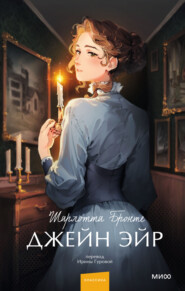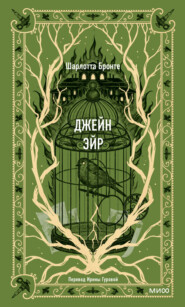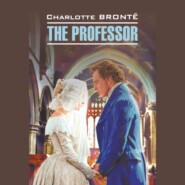По всем вопросам обращайтесь на: info@litportal.ru
(©) 2003-2024.
✖
Shirley
Настройки чтения
Размер шрифта
Высота строк
Поля
“That is to say, nothing that you will tell me. I am not to be taken into confidence. Separation is then quite to estrange us, is it?”
“I do not know. Sometimes I almost fear it is.”
“But it ought not to have that effect. ‘Should auld acquaintance be forgot, and days o’ lang syne?’”
“Robert, I don’t forget.”
“It is two months, I should think, Caroline, since you were at the cottage.”
“Since I was within it – yes.”
“Have you ever passed that way in your walk?”
“I have come to the top of the fields sometimes of an evening and looked down. Once I saw Hortense in the garden watering her flowers, and I know at what time you light your lamp in the counting house. I have waited for it to shine out now and then, and I have seen you bend between it and the window. I knew it was you; I could almost trace the outline of your form.”
“I wonder I never encountered you. I occasionally walk to the top of the Hollow’s fields after sunset.”
“I know you do. I had almost spoken to you one night, you passed so near me.”
“Did I? I passed near you, and did not see you! Was I alone?”
“I saw you twice, and neither time were you alone.”
“Who was my companion? Probably nothing but Joe Scott, or my own shadow by moonlight.”
“No; neither Joe Scott nor your shadow, Robert. The first time you were with Mr. Yorke; and the second time what you call your shadow was a shape with a white forehead and dark curls, and a sparkling necklace round its neck. But I only just got a glimpse of you and that fairy shadow; I did not wait to hear you converse.”
“It appears you walk invisible. I noticed a ring on your hand this evening; can it be the ring of Gyges? Henceforth, when sitting in the counting house by myself, perhaps at dead of night, I shall permit myself to imagine that Caroline may be leaning over my shoulder reading with me from the same book, or sitting at my side engaged in her own particular task, and now and then raising her unseen eyes to my face to read there my thoughts.”
“You need fear no such infliction. I do not come near you; I only stand afar off, watching what may become of you.”
“When I walk out along the hedgerows in the evening after the mill is shut, or at night when I take the watchman’s place, I shall fancy the flutter of every little bird over its nest, the rustle of every leaf, a movement made by you; tree-shadows will take your shape; in the white sprays of hawthorn I shall imagine glimpses of you. Lina, you will haunt me.”
“I will never be where you would not wish me to be, nor see nor hear what you would wish unseen and unheard.”
“I shall see you in my very mill in broad daylight. Indeed, I have seen you there once. But a week ago I was standing at the top of one of my long rooms; girls were working at the other end, and amongst half a dozen of them, moving to and fro, I seemed to see a figure resembling yours. It was some effect of doubtful light or shade, or of dazzling sunbeam. I walked up to this group. What I sought had glided away; I found myself between two buxom lasses in pinafores.”
“I shall not follow you into your mill, Robert, unless you call me there.”
“Nor is that the only occasion on which imagination has played me a trick. One night, when I came home late from market, I walked into the cottage parlour thinking to find Hortense; but instead of her I thought I found you. There was no candle in the room; my sister had taken the light upstairs with her. The window blind was not drawn, and broad moonbeams poured through the panes. There you were, Lina, at the casement, shrinking a little to one side in an attitude not unusual with you. You were dressed in white, as I have seen you dressed at an evening party. For half a second your fresh, living face seemed turned towards me, looking at me; for half a second my idea was to go and take your hand, to chide you for your long absence, and welcome your present visit. Two steps forward broke the spell. The drapery of the dress changed outline; the tints of the complexion dissolved, and were formless. Positively, as I reached the spot, there was nothing left but the sweep of a white muslin curtain, and a balsam plant in a flower-pot, covered with a flush of bloom. ‘Sic transit,’ et cetera.”
“It was not my wraith, then? I almost thought it was.”
“No; only gauze, crockery, and pink blossom – a sample of earthly illusions.”
“I wonder you have time for such illusions, occupied as your mind must be.”
“So do I. But I find in myself, Lina, two natures – one for the world and business, and one for home and leisure. Gérard Moore is a hard dog, brought up to mill and market; the person you call your cousin Robert is sometimes a dreamer, who lives elsewhere than in Cloth-hall and counting house.”
“Your two natures agree with you. I think you are looking in good spirits and health. You have quite lost that harassed air which it often pained one to see in your face a few months ago.”
“Do you observe that? Certainly I am disentangled of some difficulties. I have got clear of some shoals, and have more sea room.”
“And, with a fair wind, you may now hope to make a prosperous voyage?”
“I may hope it – yes – but hope is deceptive. There is no controlling wind or wave. Gusts and swells perpetually trouble the mariner’s course; he dare not dismiss from his mind the expectation of tempest.”
“But you are ready for a breeze; you are a good seaman, an able commander. You are a skilful pilot, Robert; you will weather the storm.”
“My kinswoman always thinks the best of me, but I will take her words for a propitious omen. I will consider that in meeting her tonight I have met with one of those birds whose appearance is to the sailor the harbinger of good luck.”
“A poor harbinger of good luck is she who can do nothing, who has no power. I feel my incapacity. It is of no use saying I have the will to serve you when I cannot prove it. Yet I have that will. I wish you success. I wish you high fortune and true happiness.”
“When did you ever wish me anything else? What is Fanny waiting for? I told her to walk on. Oh! we have reached the churchyard. Then we are to part here, I suppose. We might have sat a few minutes in the church porch, if the girl had not been with us. It is so fine a night, so summer-mild and still, I have no particular wish to return yet to the Hollow.”
“But we cannot sit in the porch now, Robert.”
Caroline said this because Moore was turning her round towards it.
“Perhaps not. But tell Fanny to go in. Say we are coming. A few minutes will make no difference.”
The church clock struck ten.
“My uncle will be coming out to take his usual sentinel round, and he always surveys the church and churchyard.”
“And if he does? If it were not for Fanny, who knows we are here, I should find pleasure in dodging and eluding him. We could be under the east window when he is at the porch; as he came round to the north side we could wheel off to the south; we might at a pinch hide behind some of the monuments. That tall erection of the Wynnes would screen us completely.”
“Robert, what good spirits you have! Go! go!” added Caroline hastily. “I hear the front door”
“I don’t want to go; on the contrary, I want to stay.”
“You know my uncle will be terribly angry. He forbade me to see you because you are a Jacobin.”
“A queer Jacobin!”
“Go, Robert, he is coming; I hear him cough.”
“Diable! It is strange – what a pertinacious wish I feel to stay!”
“You remember what he did to Fanny’s” began Caroline, and stopped abruptly short. “Sweetheart” was the word that ought to have followed, but she could not utter it. It seemed calculated to suggest ideas she had no intention to suggest – ideas delusive and disturbing. Moore was less scrupulous. “Fanny’s sweetheart?” he said at once. “He gave him a shower-bath under the pump, did he not? He’d do as much for me, I dare say, with pleasure. I should like to provoke the old Turk – not, however, against you. But he would make a distinction between a cousin and a lover, would he not?”
“Oh, he would not think of you in that way, of course not; his quarrel with you is entirely political. Yet I should not like the breach to be widened, and he is so testy. Here he is at the garden gate. For your own sake and mine, Robert, go!”
The beseeching words were aided by a beseeching gesture and a more beseeching look. Moore covered her clasped hands an instant with his, answered her upward by a downward gaze, said “Good night!” and went.
Caroline was in a moment at the kitchen door behind Fanny. The shadow of the shovel hat at that very instant fell on a moonlit tomb. The rector emerged, erect as a cane, from his garden, and proceeded in slow march, his hands behind him, down the cemetery. Moore was almost caught. He had to “dodge” after all, to coast round the church, and finally to bend his tall form behind the Wynnes’ ambitious monument. There he was forced to hide full ten minutes, kneeling with one knee on the turf, his hat off, his curls bare to the dew, his dark eye shining, and his lips parted with inward laughter at his position; for the rector meantime stood coolly star-gazing, and taking snuff within three feet of him.
It happened, however, that Mr. Helstone had no suspicion whatever on his mind; for being usually but vaguely informed of his niece’s movements, not thinking it worthwhile to follow them closely, he was not aware that she had been out at all that day, and imagined her then occupied with book or work in her chamber – where, indeed, she was by this time, though not absorbed in the tranquil employment he ascribed to her, but standing at her window with fast-throbbing heart, peeping anxiously from behind the blind, watching for her uncle to re-enter and her cousin to escape. And at last she was gratified. She heard Mr. Helstone come in; she saw Robert stride the tombs and vault the wall; she then went down to prayers. When she returned to her chamber, it was to meet the memory of Robert. Slumber’s visitation was long averted. Long she sat at her lattice, long gazed down on the old garden and older church, on the tombs laid out all gray and calm, and clear in moonlight. She followed the steps of the night, on its pathway of stars, far into the “wee sma’ hours ayont the twal’.” She was with Moore, in spirit, the whole time; she was at his side; she heard his voice; she gave her hand into his hand; it rested warm in his fingers. When the church clock struck, when any other sound stirred, when a little mouse familiar to her chamber – an intruder for which she would never permit Fanny to lay a trap – came rattling amongst the links of her locket-chain, her one ring, and another trinket or two on the toilet-table, to nibble a bit of biscuit laid ready for it, she looked up, recalled momentarily to the real. Then she said half aloud, as if deprecating the accusation of some unseen and unheard monitor, “I am not cherishing love dreams; I am only thinking because I cannot sleep. Of course, I know he will marry Shirley.”

















